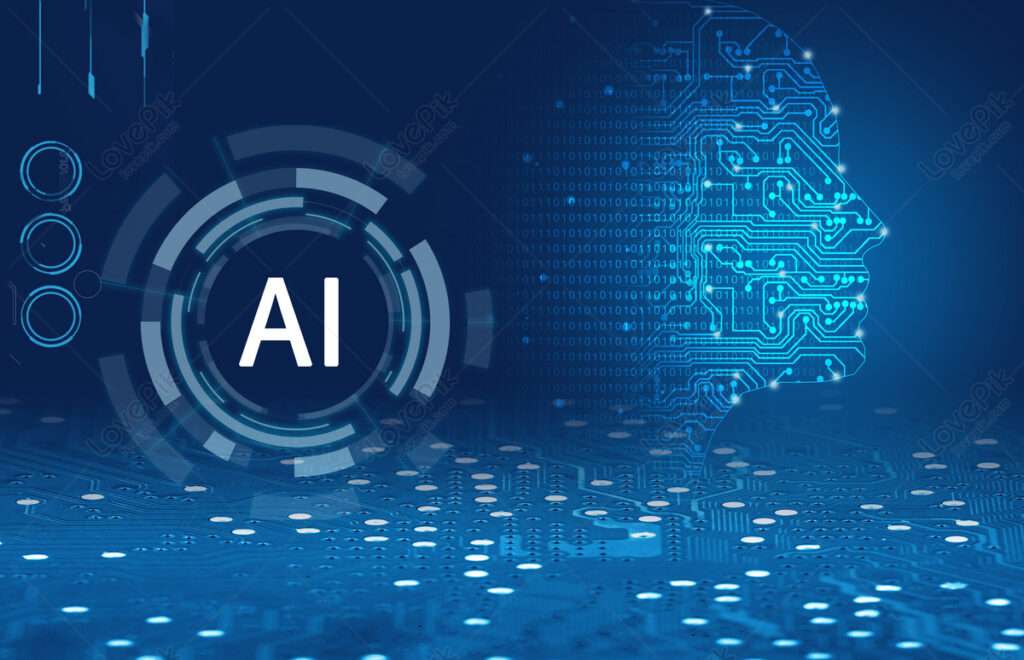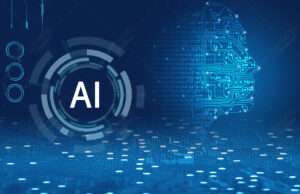AI: The Game-Changer We’ve Been Waiting For?
Artificial Intelligence (AI) has emerged as a revolutionary technology that is transforming various industries and impacting our daily lives in profound ways. From healthcare to finance, manufacturing to transportation, AI is reshaping the way we work, communicate, and interact with machines. In this article, we will explore the game-changing potential of AI, its history and evolution, its impact on different sectors, as well as the challenges and ethical considerations associated with its rapid advancement.
Introduction
What is AI in simple words? Artificial Intelligence refers to the development of intelligent machines that can perform tasks that typically require human intelligence. These tasks include speech recognition, decision-making, problem-solving, learning, and even creativity. The field of AI has seen remarkable progress over the years, thanks to advancements in computing power, big data, and machine learning algorithms.
What is Artificial Intelligence (AI)?
Artificial Intelligence what is it? Definitions of artificial intelligence AI encompasses a broad range of technologies and techniques that enable machines to simulate human intelligence. It involves the development of algorithms and models that can process and analyze vast amounts of data, recognize patterns, and make intelligent decisions based on that analysis. AI can be classified into two categories: Narrow AI, which is designed for specific tasks, and General AI, which possesses human-level intelligence and can perform any intellectual task that a human being can.
The History and Evolution of AI
The concept of AI dates back to the 1950s when computer scientists began exploring the possibility of creating machines that could mimic human intelligence. Early efforts focused on symbolic AI, which used rules and logic to simulate human thinking. However, progress was slow due to limitations in computing power and the complexity of modelling human intelligence. In recent years, the advent of machine learning and deep learning techniques, coupled with the exponential growth of data, has propelled AI to new heights.
How AI is Transforming Various Industries
What are the five examples of artificial intelligence in our Life?
Healthcare
AI is revolutionizing the healthcare industry by improving diagnostics, personalized medicine, and patient care. Machine learning algorithms can analyze medical data and images to detect diseases at an early stage, recommend treatment plans, and predict patient outcomes. AI-powered robots and virtual assistants are also being used to enhance patient experience and provide round-the-clock care.
Finance
AI is reshaping the finance sector by automating manual tasks, detecting fraud, and making more accurate predictions in investment and trading. AI-powered chatbots and virtual assistants are transforming customer service and streamlining financial operations. Machine learning algorithms are also used for credit scoring and risk assessment, enabling faster and more reliable decision-making.
Manufacturing
AI is optimizing manufacturing processes by enabling predictive maintenance, quality control, and supply chain optimization. Intelligent robots and cobots work alongside human workers, increasing productivity and safety. Machine learning algorithms are employed to analyze sensor data and identify patterns that can improve production efficiency and reduce downtime.
Retail
AI is transforming the retail industry by enabling personalized marketing, inventory management, and customer service. Recommendation systems powered by AI algorithms can analyze customer data to provide tailored product suggestions. Chatbots and virtual assistants are used to enhance customer interactions and provide real-time assistance. AI-powered robots are also being deployed for tasks like inventory management and warehouse automation.
Transportation
AI is driving innovation in the transportation sector through autonomous vehicles, intelligent traffic management systems, and route optimization. Self-driving cars and trucks have the potential to increase road safety and reduce traffic congestion. AI algorithms can analyze real-time traffic data to optimize routes, improve fuel efficiency, and enhance logistics operations.
AI and Automation
One of the significant impacts of AI is automation. AI-powered machines and robots can perform repetitive tasks more efficiently and accurately than humans, leading to increased productivity and cost savings. However, there are concerns about the displacement of human workers and the need for upskilling to adapt to the changing job market. The integration of AI with human workers can lead to more collaborative and productive work environments.
Ethical Considerations of AI
As AI continues to advance, ethical considerations become paramount. Issues such as privacy, data security, bias in algorithms, and the impact on employment need to be addressed. Transparent and responsible AI development practices are essential to ensure fairness, accountability, and the protection of individual rights. Ongoing research and collaboration between policymakers, industry experts, and ethicists are crucial to navigating the ethical challenges of AI.
Advantages and Benefits of AI
AI offers numerous advantages and benefits across various domains:
- Improved efficiency and productivity
- Enhanced decision-making and problem-solving
- Cost savings through automation
- Personalized experiences for customers
- Enhanced healthcare diagnostics and treatment
- Safer and more efficient transportation systems
- Advanced cybersecurity measures
- Increased access to education and customised learning
Challenges and Concerns of AI
While the potential of AI is vast, several challenges and concerns need to be addressed:
- Ethical Implications and responsible use of AI
- Ensuring transparency and fairness in algorithms
- Privacy and data security risks
- Potential job displacement and workforce transformation
- Socioeconomic Impacts and Inequality
- Dependence on AI and Potential for Misuse
- Unintended Consequences and Biases in AI Systems
AI and the Future of Work
The integration of AI into the workplace is reshaping the nature of work and the skills required. While some jobs may become automated, new opportunities for collaboration and creativity emerge. The human workforce must adapt and acquire new skills to complement AI technologies. Lifelong learning and upskilling will become essential for individuals to thrive in the AI-driven future.
AI and Personal Assistants
Personal assistants powered by AI, such as Amazon’s Alexa, Apple’s Siri, and Google Assistant, have become increasingly popular. These virtual assistants can perform a wide range of tasks, including answering questions, setting reminders, playing music, and controlling smart home devices. They rely on natural language processing and machine learning algorithms to understand and respond to user commands.
AI in Entertainment and Gaming
AI has also made significant contributions to the entertainment and gaming industries. In video games, AI algorithms are used to create realistic characters, simulate intelligent behaviour, and provide immersive gaming experiences. AI-powered recommendation systems are also prevalent in streaming platforms, suggesting personalized content based on user preferences.
AI in Education
AI is transforming education by enabling personalized learning experiences and intelligent tutoring systems. Adaptive learning platforms can analyze student performance data and provide tailored recommendations for improvement. AI-powered chatbots and virtual tutors can assist students with their queries and provide real-time feedback.
AI and Cybersecurity
The rapid growth of digital systems and networks has increased the importance of cybersecurity. AI plays a crucial role in detecting and mitigating cyber threats. Machine learning algorithms can analyze vast amounts of data to identify patterns indicative of malicious activities. AI-powered systems can detect anomalies, predict potential cyber attacks, and automate responses, bolstering cybersecurity measures.
The Future of AI
The future of AI holds immense possibilities. Advancements in areas such as natural language processing, computer vision, and robotics will continue to push the boundaries of AI capabilities. The integration of AI with emerging technologies like the Internet of Things (IoT) and 5G will unlock new opportunities for innovation. However, it is crucial to ensure responsible AI development, address ethical concerns, and establish frameworks that prioritize human well-being and societal benefits.
Conclusion
Artificial Intelligence is undoubtedly the game-changer we’ve been waiting for. Its transformative potential spans across industries, revolutionizing healthcare, finance, manufacturing, retail, transportation, and more. While AI brings significant advantages and benefits, it also presents challenges and ethical considerations that must be addressed. As AI continues to evolve, collaboration between stakeholders, ongoing research, and responsible practices will be key to harnessing its full potential for the betterment of society.
Read The Futer of Computer
FAQs (Frequently Asked Questions)
Q: What is the role of AI in our daily lives?
A: AI has already made its way into our daily lives in various forms. From voice assistants on our smartphones to personalized recommendations on streaming platforms, AI is seamlessly integrated into our routines, making our lives more convenient and efficient.
Q: Can AI replace human creativity?
A: While AI has made remarkable advancements in creativity, such as generating artwork and composing music, it is unlikely to fully replace human creativity. AI can augment human creativity by providing new tools and insights, but the essence of human expression and originality remains unparalleled.
Q: How is AI transforming customer service?
A: AI-powered chatbots and virtual assistants are revolutionizing customer service by providing instant and personalized support. These intelligent systems can handle customer queries, offer product recommendations, and resolve issues, freeing up human agents to focus on more complex tasks.
Q: Are there any risks associated with relying heavily on AI?
A: While AI brings numerous benefits, it also poses certain risks. These include algorithmic biases, security vulnerabilities, and the potential for AI to be weaponized. Careful consideration and proactive measures are necessary to mitigate these risks and ensure responsible AI development and usage.
Q: Can AI help in combating climate change?
A: Absolutely! AI can contribute significantly to addressing climate change challenges. It can optimize energy consumption, enable smart grids, improve weather forecasting, and facilitate the development of sustainable solutions. AI’s potential in combating climate change is immense.
Q: What are the prospects of AI?
A: The future of AI holds great promise. As technology continues to advance, we can expect AI to further permeate various industries and drive transformative change. From personalized medicine to smart cities, AI will continue to shape our world in remarkable ways.



